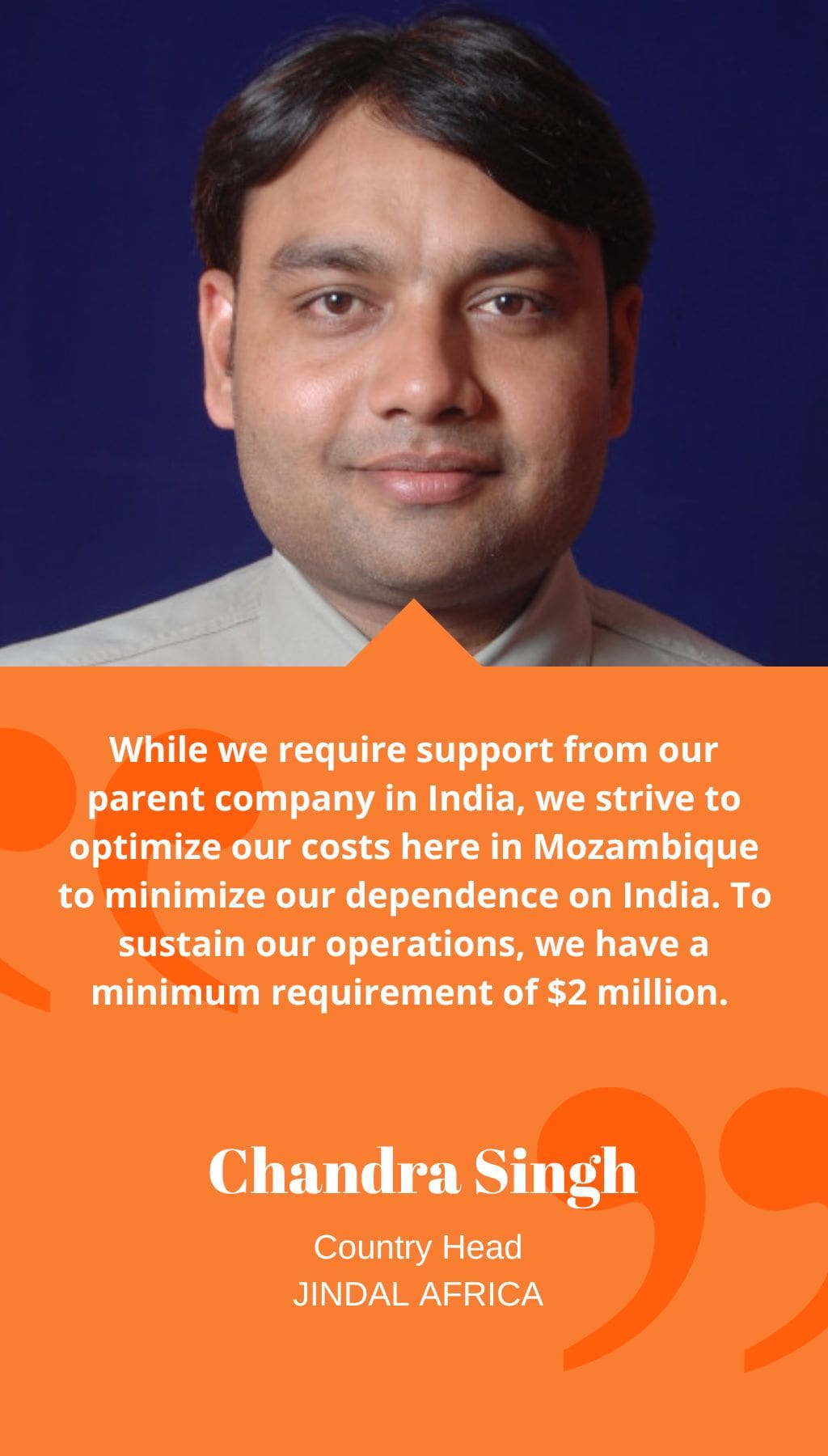
- Mozambique | 8 September 2019

Can you provide an update on your progress towards meeting the targeted increase in annual production from 3 million to 10 million tons?
Unfortunately, we did not see the expected improvements in the market last year, and our current annual production rate remains at 3 million tons. The challenging currency situation in the country is affecting the entire business cycle. Additionally, the drop in oil prices to under $50 a barrel has impacted costs, particularly labor costs, as we have had to increase salaries. Given these circumstances, we realized the importance of adding value to our operations. In our case, we aim to convert thermal coal into consumable energy, and we have been collaborating with EDM (Electricidade de Moçambique) and the Ministry of Minerals, Resources, and Energy. I’m pleased to say that we have made substantial progress on this project. We have obtained environmental clearance for the power project, and we are in discussions with EDM regarding a power-purchasing agreement. We are also in talks with the ministry to secure concession agreements. These initiatives are crucial steps towards advancing the power plant project. Once these phases are completed, our next focus will be securing financing. We hope to achieve this by the end of 2020, and construction of the project will commence thereafter. The first phase of the power plant will have a production capacity of 150MW, with an estimated cost of $350-375 million. A comprehensive report will be generated by the end of this year, which will provide a clearer picture of the required investment.
How does Jindal contribute to socioeconomic development in Mozambique?
As part of our commitment to the local community and in line with our agreement with the community and local government, we have already begun construction on 577 houses. Currently, 60 houses are under construction, and we have already completed around 60-70% of them. We are actively engaging more contractors to expedite the construction process. In addition, we provide compensation of approximately 2,000 meticals per family to support the local community. Our mining operations employ 650 workers, and nearly 200 of them are directly from the local community. Our primary focus is to increase local employment by engaging more people from the community. However, due to the remote location, finding skilled labor within the community is a challenge, even though we have implemented certain training programs as part of our corporate social responsibility goals. Last year, we trained 35 individuals, and we continue to collaborate with the community to provide technical training experiences through a local technical institute in Tete.
How does the restructuring of Jindal in India impact the operations in Mozambique?
While we require support from our parent company in India, we strive to optimize our costs here in Mozambique to minimize our dependence on India. To sustain our operations, we have a minimum requirement of $2 million. Although there is an impact from the restructuring, I do not anticipate any major problems as a result. In the context of our overall operations, this business in Mozambique is relatively small. Our current investment in Mozambique amounts to just $250,000 within an $18 billion company. Furthermore, the revenue generated by our Mozambique operations represents only 2-3% of the total group revenue, so the impact of the restructuring will be minimal.
What are your expectations for 2020?
Our main goals for 2020 are to finalize the agreement and concession for the power plant within the next three to four months. Once these milestones are achieved, our immediate focus will be on securing financing for the project. These two targets are the major priorities for us this year as we continue to work towards the expansion of our operations in Mozambique.














